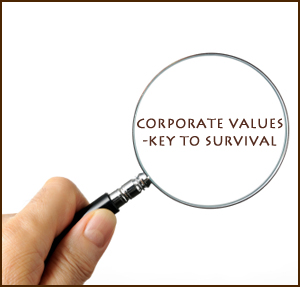 We all agree that companies should be responsible for any adverse impact of their actions on consumers or other stakeholders. But the extent of their liability is tough to measure. To grasp the challenge of this issue, consider this scenario – Should a cab driver ask for the exact nature of your trip to decide if he should give you the ride? If you think this is absurd, imagine if you were running away from a crime scene or going to one – he did play a central role without really meaning to do so. Some versions of this are becoming real issues that businesses are facing – from banking, to technology and internet companies. Should HSBC have a view on how its customers acquired their money, or should they just focus on providing the best service to anyone who seeks their advise? Should Youtube offer a video platform to anyone who wishes to express themselves, or should they turn into a moral policeman too? Should Facebook block a hate group on its social platform, or should it focus on building the best social networking functionality available to all?
We all agree that companies should be responsible for any adverse impact of their actions on consumers or other stakeholders. But the extent of their liability is tough to measure. To grasp the challenge of this issue, consider this scenario – Should a cab driver ask for the exact nature of your trip to decide if he should give you the ride? If you think this is absurd, imagine if you were running away from a crime scene or going to one – he did play a central role without really meaning to do so. Some versions of this are becoming real issues that businesses are facing – from banking, to technology and internet companies. Should HSBC have a view on how its customers acquired their money, or should they just focus on providing the best service to anyone who seeks their advise? Should Youtube offer a video platform to anyone who wishes to express themselves, or should they turn into a moral policeman too? Should Facebook block a hate group on its social platform, or should it focus on building the best social networking functionality available to all?
Till now, businesses had a single focus – deliver shareholder value, which was typically just about enhancing profits and ROC. The only rule they had to keep in mind is that they break no law. But now businesses are facing much more complex issues – the unintended consequences of the services they offer, and their impact. Should businesses have a view point on freedom of expression when the local government wants to curb it? At what point does tax efficiency become tax evasion? Wage arbitrage comes with its own moral dilemmas of what benefits do you want to extend one set of workers vs another. Continue reading →
 Being in a band is always a compromise. Provided that the balance is good, what you lose in compromise, you gain by collaboration. —Mike Rutherford
Being in a band is always a compromise. Provided that the balance is good, what you lose in compromise, you gain by collaboration. —Mike Rutherford








